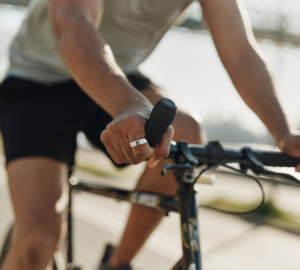In this Q&A Sleep Doctor Michael Breus answers some key questions surrounding sleep.
Q: Willpower and sleep are two things that many people do think of as connected; is there a connection between sleep/sleep quality and willpower? How would you describe it?
A: There is data to show that YES, sleep does affect “willpower.” There are 2 basic models of self-control or willpower. One is complex and involves the metabolism of glucose, in that lower levels of glucose will lower willpower (we know that sleep deprivation can place a person in an insulin-resistant state very quickly) because our body needs the fuel while awake. The second model is one more of psychology and subjective motivation. Where it is easy to see how sleep has an effect here, in that being sleep deprived usually increases emotional reactivity (increases in anxiety or depression) which has an effect on self-control as well. However, to date, there is not a ton of research in this area.
Q: We always think of sleep as a way to recover physically, but can you talk about why sleep is so important to our mental health as well? What exactly does it help with?
A: When we talk about how sleep affects mental health we are usually referring to how sleep deprivation affects emotional mental health vs cognitive mental health. That said, sleep affects every emotional state and it usually exacerbates them making a person more emotionally reactive. Thus sleep seems to have an emotionally calming effect, generally speaking. Acute sleep ( napping) has also been shown to help increase feelings of self-worth and happiness.
Q: On top of that, how does getting good or poor quality sleep affect your decision-making abilities? Should you wait to make key decisions until you have a slept mind?
A: The data suggest that when you are sleep deprived you have a tendency to make riskier decisions. Also, people with a night owl chronotype ( wolf) have this tendency as well. In our home, we always wait on decision-making until after a good night of sleep due to the implications of REM sleep. During REM, which is basically our mental rehabilitation, we consolidate memories and then have better data to make decisions. Let’s be 100% honest, does anyone ever make good decisions when sleep-deprived? Probably not. Especially if the topic is complex.
Q: Once you make a decision, you still have to carry it through. How does sleep optimize a person’s ability to execute and perform tasks efficiently?
A: Sleep certainly affects performance in many areas; one example is business. In the workplace, we see small deficits in sleep add up to significant problems for productivity. Losing out on as little as 30 minutes a night of the sleep you need can affect performance, including motivation, focus, reaction time, the ability to keep multiple tasks on track, as well as memory and decision making. A 2018 study examined the ways different sleep issues affected work productivity. That study found that people with mild insomnia had a 58% productivity loss. People who experienced daytime sleepiness had a 50% loss in productivity. And people who snore lost between 19-34% of their productivity. A vicious cycle often develops, where being tired leads to work taking longer, which leads to less sleep and a greater loss in productivity.
Q: One key decision that many people make is the New Year’s Resolution. Those are historically hard to stick to. What can people do to build up the willpower and/or mental fortitude to stick to their resolutions? Is it sleep? Is it something else? A combo?
A: I have actually written an entire blog on this specific event. And I don’t think it requires a lot of willpower or mental fortitude but rather some simple sleep recommendations:
- Limit Blue Light before bed.
- Remember your diet affects your sleep, specifically alcohol.
- Listen to something relaxing at night.
- Monitor your temperature.
- Avoid exercising too late at night.
But the key here is to have good sleep habits BEFORE you go out partying your head off on New Years. Because if you start with a 1/2 full tank, you are certainly going to run out faster.
Q: Are there signs you can look for in your body that you might be losing willpower/lowering your battery?
A: Fatigue and sleepiness are the two that come to mind. There is a difference, Fatigue is something you physically feel in your muscles, joints, etc. Sleepiness is when you can’t keep your eyes open. Here is a blog that helps you discover how fatigue affects…everything.





